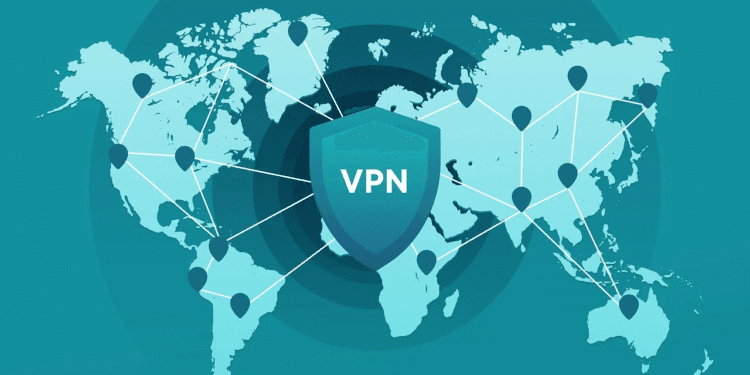Stay Secure in the Canaries: Top VPNs That Actually Work in Tenerife
I’ll be honest, when I first started looking into VPNs for Tenerife, I thought it would be straightforward. After all, it’s part of Spain, which is in the EU, so surely internet freedom wouldn’t be an issue? Well, yes and no.
The thing is, even in relatively open places like Tenerife, you still run into the usual problems. Hotel WiFi that’s about as secure as a paper bag. Geo blocking that stops you watching your favourite programmes from back home. And perhaps more importantly, the general peace of mind that comes with knowing your browsing isn’t being tracked by every website you visit.
I’ve spent quite a bit of time testing different VPN services whilst staying on the island, and I think I’ve got a decent handle on what actually works there. Some of the big names that work brilliantly elsewhere can be surprisingly patchy in the Canaries.
Why You Might Need a VPN in Tenerife
Before diving into the recommendations, it’s worth thinking about why you’d want a VPN in the first place. Tenerife isn’t exactly a surveillance state, but there are still plenty of reasons to consider one.
The most obvious is probably streaming. If you’re used to your Netflix library back home, you’ll quickly discover that the Spanish version is quite different. Sometimes frustratingly so. A good VPN can help you access your usual content, though I should mention that this does go against Netflix’s terms of service.
Then there’s the security aspect. Tourist areas are notorious for dodgy WiFi networks, and Tenerife is no exception. I’ve lost count of the number of “Free WiFi” networks I’ve seen in Los Cristianos and Playa de las Américas that look decidedly suspicious. A VPN encrypts your traffic, which means even if someone is monitoring the network, they can’t see what you’re up to.
There’s also the privacy angle. Spanish internet service providers, like most others in Europe, are required to keep logs of user activity. If you’re the sort of person who values their privacy, a VPN can help keep your browsing habits to yourself.
What Makes a Good VPN for Tenerife?
Not all VPNs are created equal, and what works well in London might struggle in Santa Cruz. I’ve found a few key factors that seem to matter more in Tenerife than elsewhere.
Speed is crucial. The internet infrastructure in Tenerife is generally pretty good. If your VPN is already slowing things down significantly, the combination can be quite frustrating. I’ve tested services that worked fine in major European cities but were painfully slow on the island.
Server locations matter too, though perhaps not in the way you’d expect. Having servers in mainland Spain can actually be really useful for accessing Spanish content with better speeds. But you’ll also want servers in your home country for accessing geo blocked content.
Reliability is another big one. Some VPNs have a habit of dropping connections at inconvenient moments, which can be particularly annoying when you’re trying to stream something or in the middle of important work.
The VPNs That Actually Work
After testing quite a few services, I’ve narrowed it down to the ones that consistently perform well in Tenerife. These aren’t necessarily the cheapest options, but they’re the ones I’d actually recommend using.
ExpressVPN consistently comes out on top, though I’ll admit it’s not the cheapest option. The speeds are excellent, even during peak hours when everyone’s trying to stream Netflix. They have servers in Madrid and Barcelona, which work brilliantly for Spanish content, plus comprehensive coverage elsewhere. The connection rarely drops, and when it does, the kill switch actually works properly.
I’ve found their customer support particularly helpful too. When I had issues connecting from a hotel in Puerto de la Cruz, their live chat sorted it out within minutes. The app is straightforward enough that even my technologically challenged relatives could probably figure it out.
NordVPN is probably the most popular choice, and for good reason. It’s significantly cheaper than ExpressVPN, especially if you’re willing to commit to a longer subscription. The speeds are generally very good, though I have noticed the occasional slowdown during Spanish peak hours.
What I particularly like about Nord is their double VPN feature, which routes your traffic through two servers instead of one. It’s probably overkill for most people, but if you’re particularly privacy-conscious, it’s a nice option to have. They also have a decent number of servers in Spain, which helps with local content.
Surfshark has become increasingly popular, and I can see why. It’s one of the few services that allows unlimited simultaneous connections, which is brilliant if you’re travelling with family or have multiple devices. The speeds are solid, though not quite as consistent as ExpressVPN.
One thing that sets Surfshark apart is their CleanWeb feature, which blocks ads and malware. It’s surprisingly effective, and makes browsing on dodgy hotel WiFi feel a bit safer. The price is very reasonable too, particularly for longer subscriptions.
CyberGhost is worth mentioning, though with some caveats. It’s very user-friendly and has good speeds most of the time. However, I’ve found it can be a bit unreliable with streaming services. Sometimes it works perfectly, other times Netflix spots it immediately. If streaming isn’t a priority, it’s a solid choice.
A Few Services to Avoid
I don’t want to be too negative, but there are some VPNs that simply don’t work well in Tenerife, despite their marketing claims.
Free VPNs are generally a waste of time. The speeds are terrible, they’re often blocked by streaming services, and frankly, if you’re not paying for the product, you probably are the product. I tested a few popular free options and none of them were usable for anything more demanding than basic web browsing.
Some of the budget paid options aren’t much better. Without naming names, I found several that worked fine for a day or two, then became increasingly unreliable. Customer support was either non-existent or unhelpful when problems arose.
Gaming and Online Entertainment
Whilst we’re talking about internet activities in Tenerife, it’s worth mentioning gaming and online entertainment. The island’s internet infrastructure is generally good enough for most online gaming, though you might notice slightly higher ping times compared to mainland Europe.
Many visitors find themselves with more downtime than usual, particularly during the hotter parts of the day when it’s too warm to be out and about. This is when having reliable internet becomes particularly important. Whether you’re into casual mobile games or prefer something more involved, a stable connection makes all the difference.
For those interested in online casino platforms and similar entertainment, you’ll find that many UK-based sites are accessible from Tenerife, though some may have geographical restrictions. If you’re looking for alternatives to traditional platforms, you can find more information here. Just remember to gamble responsibly and be aware of any local regulations that might apply.
Practical Tips for Using a VPN in Tenerife
Getting a VPN is only half the battle. Actually using it effectively takes a bit of know-how.
Choose your server location carefully. If you’re trying to access UK content, connecting to a server in Australia isn’t going to help, even if it shows better speeds. Closer is generally better, but not always. Sometimes a server in Germany will give you better performance than one in Madrid, even though it’s further away.
Don’t leave your VPN running all the time if you don’t need to. This might sound counterintuitive, but some local services work better without a VPN. Spanish banking websites, for instance, can be quite sensitive to foreign IP addresses. I’ve learned to turn it off for certain activities and back on for others.
Test your speeds regularly. VPN performance can vary significantly depending on the time of day and server load. What works brilliantly at 10am might be frustratingly slow at 9pm when everyone’s trying to stream Netflix.
Keep your VPN app updated. This sounds obvious, but it’s easy to forget when you’re on holiday. Outdated apps can have security vulnerabilities and performance issues.
The Bottom Line
I think a good VPN is worth having in Tenerife, even if you’re not particularly privacy-conscious. The security benefits alone justify the cost, and being able to access your usual content is a nice bonus.
ExpressVPN remains my top choice, despite the higher price. The performance is consistently excellent, and the customer support is genuinely helpful. If budget is a concern, NordVPN offers similar functionality at a lower price point, though with slightly less consistent performance.
Whatever you choose, avoid the temptation to go with the cheapest option. A VPN that doesn’t work properly is worse than no VPN at all, because it gives you a false sense of security whilst potentially slowing down your connection.
The key is finding something that works reliably for your specific needs. What matters most to you – streaming, security, or just general privacy? Once you’ve figured that out, choosing the right VPN becomes much easier.
Whether you’re planning to spend your time exploring Mount Teide National Park or just relaxing by the pool with your laptop, having a reliable VPN gives you the freedom to use the internet on your own terms.
















